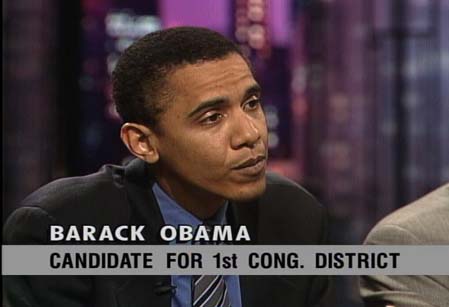 In many conversations with bikers, I often fail to impress upon them the amazing power that comes from campaign work. While I know it to be the silver bullet that we need, other bikers don't normally see it that way.
In many conversations with bikers, I often fail to impress upon them the amazing power that comes from campaign work. While I know it to be the silver bullet that we need, other bikers don't normally see it that way. I'd guess only one in a hundred activists see the truth of it. And the irony is, the longer they've been fighting the good fight, the harder it is for them to see the light. Even if it will deliver them everything they've been fighting for.
It's one of those Catch-22 situations.
 I can explain the whole battle plan to an average joe standing in line at the grocery store. By the time we reach the checkout counter, he understands how simple, effective, and downright unstoppable the RIDE2REPEAL program is. That's because he doesn't have to un-learn anything.
I can explain the whole battle plan to an average joe standing in line at the grocery store. By the time we reach the checkout counter, he understands how simple, effective, and downright unstoppable the RIDE2REPEAL program is. That's because he doesn't have to un-learn anything.The most dedicated activists are quite another story. They've evolved their strategy and tactics over many years, and learned their lessons from countless events as well as crises. And they're still standing, where so many others have fallen by the wayside. It's a testiment to their stubborn belief in fighting for what's right.
Here's the catch: The most effective activism is guided by unconventional wisdom. Just as Generals fight by using the weapons and tactics of the last war, bikers have developed a respectable level of proficiency at doing what used to work "back in the day."
But the world changes.
 Napoleon was the first European General to pursue his opponents off the field of battle to ensure they couldn't come back to fight another day. All the other Armies thought this was a tremendous breach of protocol, and considered him a vulgar and self-serving man. But he changed the rules right out from under them, eventually becoming Emporer over most of Europe, the Middle East, and North Africa.
Napoleon was the first European General to pursue his opponents off the field of battle to ensure they couldn't come back to fight another day. All the other Armies thought this was a tremendous breach of protocol, and considered him a vulgar and self-serving man. But he changed the rules right out from under them, eventually becoming Emporer over most of Europe, the Middle East, and North Africa. In the world of commerce, all the major retailers scoffed at a bare-bones store that was run by a guy who drove a pickup truck, usually with hunting dogs in the back. But he saw clearly that there was a better way to provide more products for less money. Since those early days, Walmart has been so successful it now dwarfs stores like Sears and JCPenny.
In the world of commerce, all the major retailers scoffed at a bare-bones store that was run by a guy who drove a pickup truck, usually with hunting dogs in the back. But he saw clearly that there was a better way to provide more products for less money. Since those early days, Walmart has been so successful it now dwarfs stores like Sears and JCPenny.The fight for bikers rights is undergoing a similar sea-change in how it gets things done. I call it unconventional wisdom because most SMROs use a completely conventional game plan. Hold meetings that mostly deal with running the SMRO. Hold fundraisers to cover the costs of running a large organization. Perform good deeds to endear us to the general population, and along the way recruit more people into the organization ... which is always in dire need of more members and money.
 Politics is war, but without violence. Fought conventionally, values are the cannons we use to shoot ideas at our opponents. With enough dedicated people, it will be possible to win the war of ideas through superior firepower. Victory comes at last when our rights are restored. The strategy is getting our beliefs to be accepted throughout the land, and then we will have our rights handed to us by a penitent nation.
Politics is war, but without violence. Fought conventionally, values are the cannons we use to shoot ideas at our opponents. With enough dedicated people, it will be possible to win the war of ideas through superior firepower. Victory comes at last when our rights are restored. The strategy is getting our beliefs to be accepted throughout the land, and then we will have our rights handed to us by a penitent nation.Unconventional wisdom says otherwise. The most important battles must be strategic victories. And the decicive battleground is not the court of public opinion. Instead, it's the state legislature, where almost all motorcycle laws come from. It's also where upwardly mobile politicians come from as they move up to Federal positions of power.
 10 years ago our President was a candidate for the state senate. And a few dozen Illinois bikers could have changed the course of history. Now millions of people write Obama, and it has no effect on his decisions.
10 years ago our President was a candidate for the state senate. And a few dozen Illinois bikers could have changed the course of history. Now millions of people write Obama, and it has no effect on his decisions. The only motorcycle statistic that matters is a legislative majority. Politicians know this. Average people understand it easily enough. It's not just about numbers, (which is problematic for a minority). It has to do with the few who have great influence over legislation. In otherwords, our legislators. Win them over, and nothing can stand in our way.
Ask a legislator how much influence a letter to the editor has on his beliefs. Some may read an article they already agree with, and others would just as easily dismiss it out of hand. But deep inside they've already figured out what matters to them, and the rest they can ignore.
Now turn it up a notch, and write letters directly to legislators. Make an appointment to visit them at the Capitol. Hold a protest rally on the Capitol steps, with news cameras rolling, staging spectacular displays of patriotism, and giving impassioned speeches to the masses.
When it's over, the legislators go back to the business at hand, and motorcyclists go back home. In a couple of days, it's as if bikers were never there at all. The legislators that support us will continue to support us, and the ones that oppose us will continue to oppose us. In the end, nothing really changed.
But what if the bikers approached legislators while they were still hungry candidates? Helping them win on the campaign trail is something they will always remember. And if they know that bikers will always be there to help in time of need, they will be eager to pay us back with their loyalty during the legislative session.
Back when my activism consisted entirely of writing impassioned letters, organizing newsworthy events, and tracking down legislators who were in the middle of a session, I was at best an unknown passer-by ... almost a trespassing nuisance in the halls of power. All my friends, like me, were outside looking in. And unable to change a single mind.
Then I started asking candidates about their helmet law position, well before the elections. Many of them staunchly supported the helmet law, while quite a few supported repeal of some parts. Others were on the fence, or had no opinion at all.
So I started working as a campaign volunteer for candidates who supported our right to decide. As it turns out, they also typically favored limited government intervention in people's day-to-day lives. That includes not only motorcycle issues, but other matters related to individual liberty.
As long as they were competitive, with a reasonable chance of winning, I gave them my best effort. Motorcycle issues were off the table, with every word and deed geared towards getting them elected. They saw this day-in and day-out on the campaign trail.
Now I have a personal relationship with four freshmen legislators. They know me by name, and they call me when they need help. They see me suppoorting them at events. They also ask me what I think about pending legislation. Only then to I tell them what I really think. And why do they listen to me above the media clamor? Because they know me and trust me. Anonymous letters and newspaper polls aren't more than a passing though.
If you were to ask any one them what has the most influence over how bills get voted on, letters to the editor would not be on their list. Constituent contact may take it up a notch, but only just so far depending upon the pros and cons of the political landscape.
But if you asked them how much of an impact campaign volunteering has, it would be at the very top of their list. Without a solid team of volunteers on the campaing trail, they'd be nowhere. And should those volunteers be working against them, it would give them a good reason to reassess their positon on a pending bill. No doubt about it.
So when a biker activist decides what course of action he should take, it would be wise to follow the path that has the greatest influence, and therefore gets the greatest results.
Most biker activists don't know this, as evidenced by how they prioritize the traditional political activities they employ. It takes an open mind to see things differently. But once viable alternatives are compared to the standard approaches, the true value stands out in stark relief.
Not every biker will understand the power of campaign work. Some will give it passing acceptance as long as it doesn't change the way they do business. But the rare biker will fully embrace this unconventional wisdom, and act upon it with great success. And when that happens, others will shed their old ways and embrace the new.
That's the day we stop fighting, and we start winning.
-RIDE2REPEAL@gmail.com





